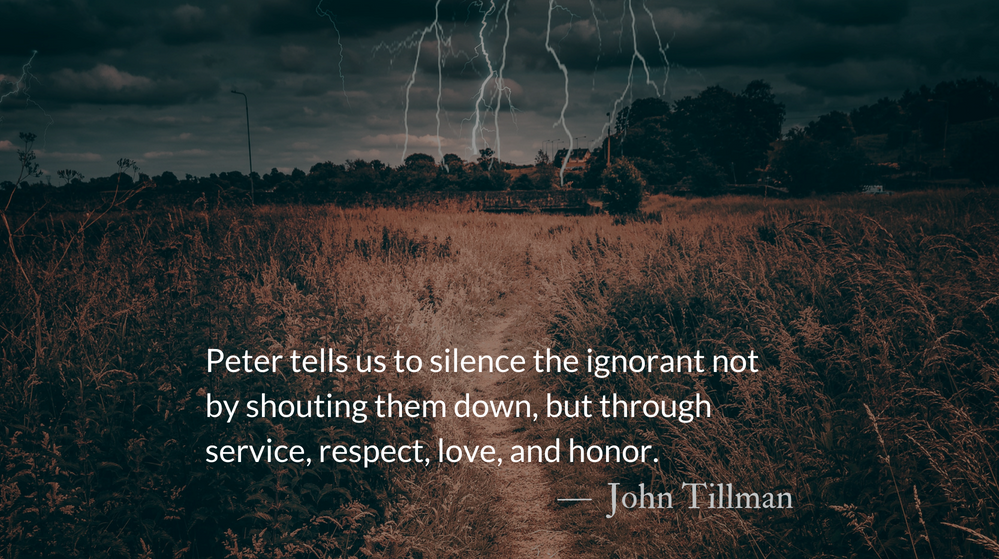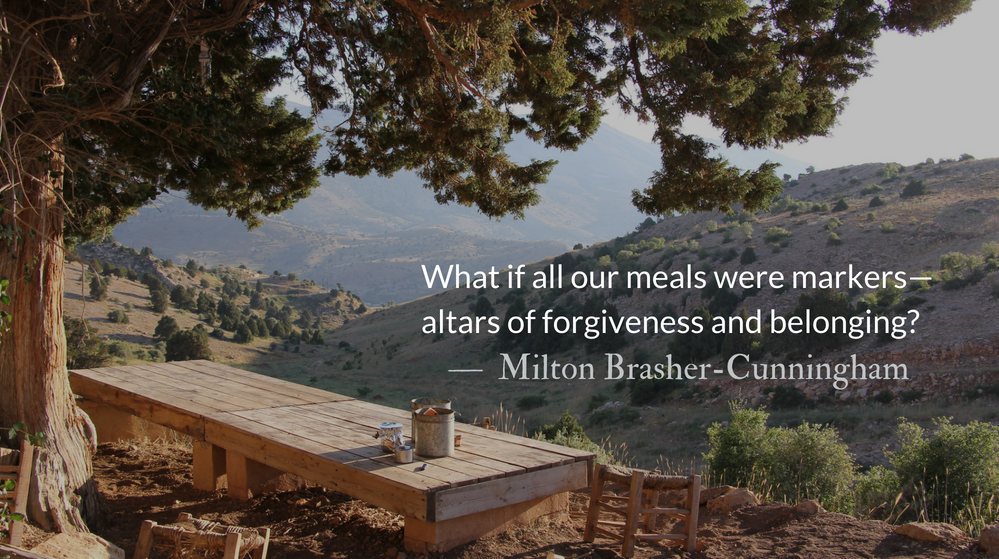Scripture: 1 Peter 4.12-19
Dear friends, do not be surprised at the fiery ordeal that has come on you to test you, as though something strange were happening to you. But rejoice inasmuch as you participate in the sufferings of Christ, so that you may be overjoyed when his glory is revealed. If you are insulted because of the name of Christ, you are blessed, for the Spirit of glory and of God rests on you. If you suffer, it should not be as a murderer or thief or any other kind of criminal, or even as a meddler. However, if you suffer as a Christian, do not be ashamed, but praise God that you bear that name. For it is time for judgment to begin with God’s household; and if it begins with us, what will the outcome be for those who do not obey the gospel of God? And,
“If it is hard for the righteous to be saved,
what will become of the ungodly and the sinner?”
So then, those who suffer according to God’s will should commit themselves to their faithful Creator and continue to do good.
Reflection: Called to Unmovable Joy :: Throwback Thursday
By John Tillman
In today’s Throwback Thursday poem, George Herbert speaks of the joy and love that will come as we answer Christ’s call to feast with him—a joy that cannot be moved and a love that can’t be parted from us even by suffering or death.
The Call
Come, my Way, my Truth, my Life:
Such a Way, as gives us breath:
Such a Truth, as ends all strife:
Such a Life, as killeth death.
Come, my Light, my Feast, my Strength:
Such a Light, as shows a feast:
Such a Feast, as mends in length:
Such a Strength, as makes his guest.
Come, my Joy, my Love, my Heart:
Such a Joy, as none can move:
Such a Love, as none can part:
Such a Heart, as joys in Love.
— George Herbert, from Five Mystical Songs
Peter says that our suffering will lead to joy as the glory of Christ is revealed to us.
The believers Peter wrote to were familiar with being both socially outcast and with being physically attacked. They had been forced to flee under oppression by a combination of those who opposed their religious beliefs and a government which favored the religions it approved of.
Whether we suffer the dis-comforting loss of social status Christianity is experiencing in the west or the persecutions more common overseas, including physical attacks, imprisonment, and assassinations, our sufferings allow us to participate in the suffering of Christ.
May our sufferings not reveal bitterness and anger in our spirits, but the joy and love of Christ.
May we feast with Christ daily in the Word.
May we be sustained for the work he calls us to.
May the joy and love Christ gives us be unmovable from our hearts.
May we bring others with us to the feast.
*from 5 Mystical Songs, The Call: music by Ralph Vaughan Williams
Prayer: The Greeting
My God, my rock in whom I put my trust, my shield, the horn of my salvation, and my refuge; you are worthy of praise. — Psalm 18.2
– Prayer from The Divine Hours: Prayers for Springtime by Phyllis Tickle.
Full prayer available online and in print.
Today’s Readings
Isaiah 16 (Listen – 2:32)
1 Peter 4 (Listen – 2:50)











